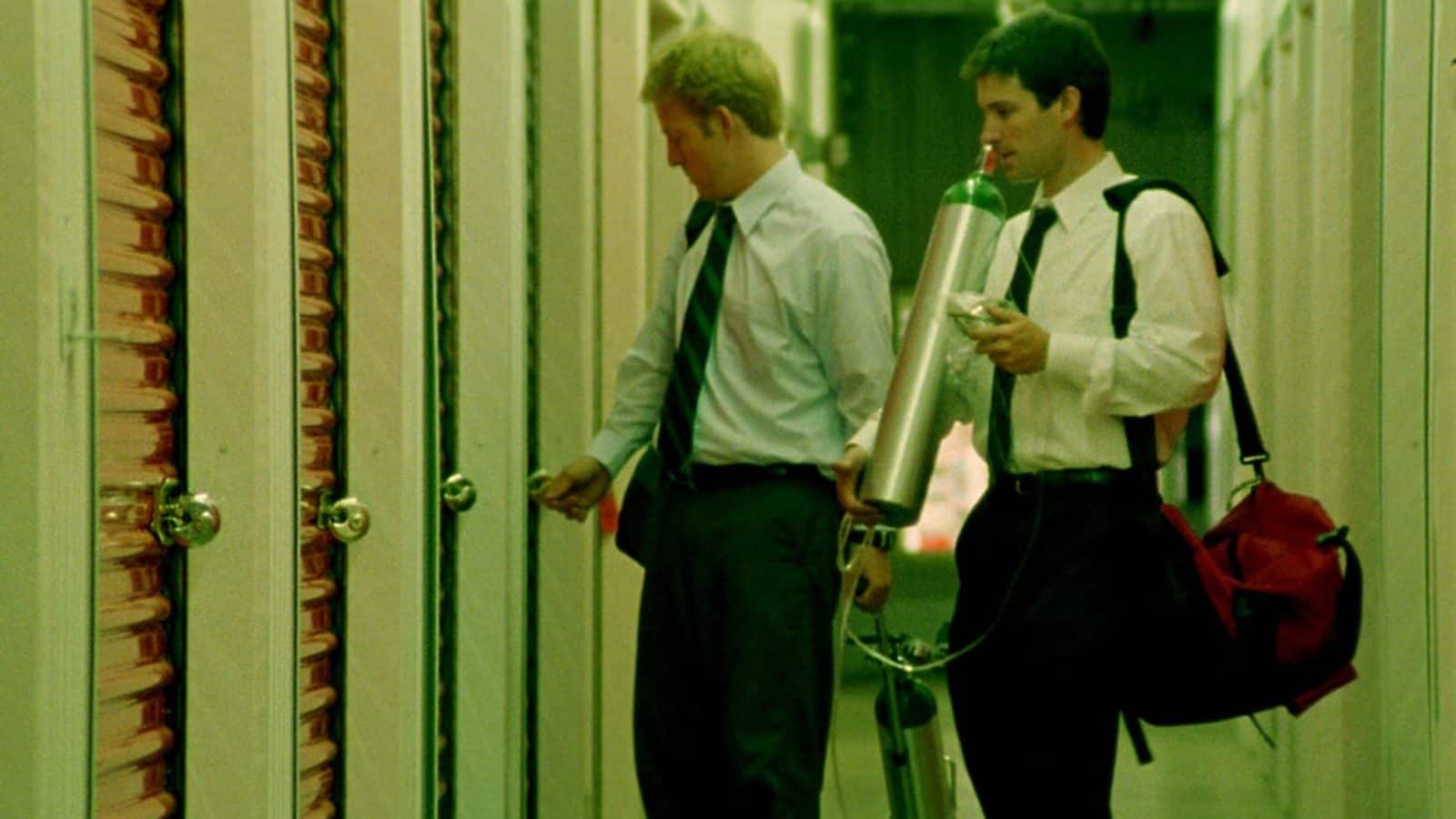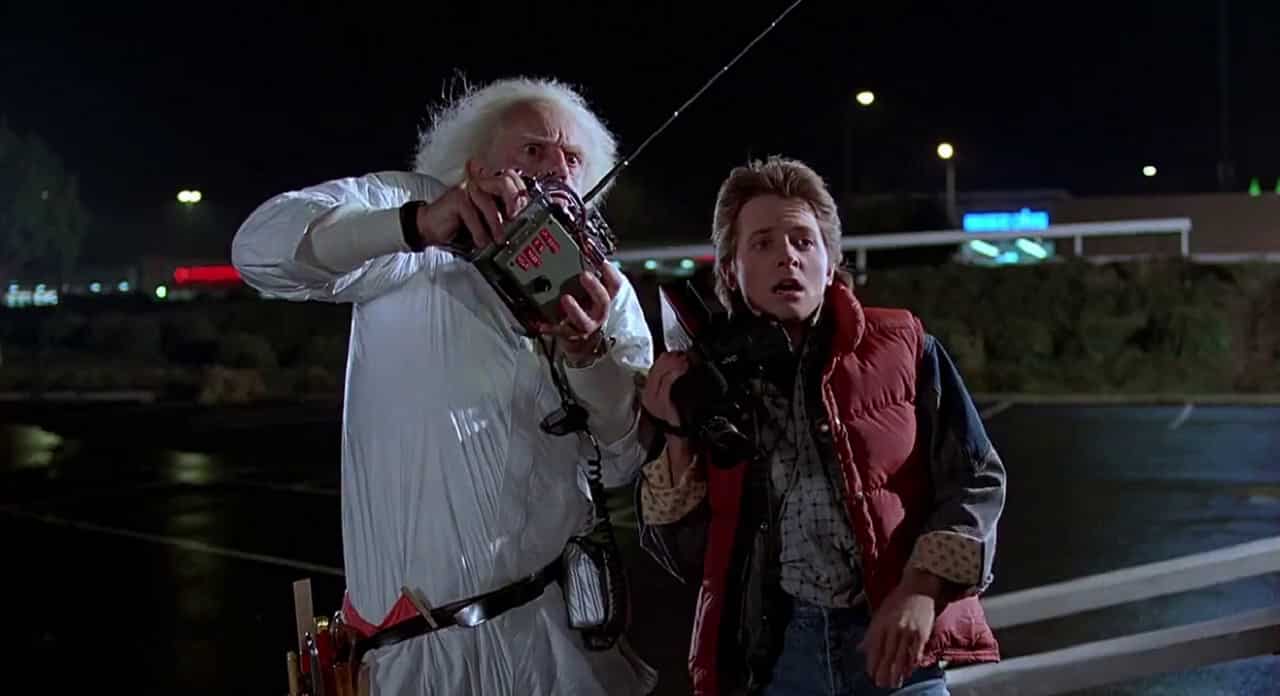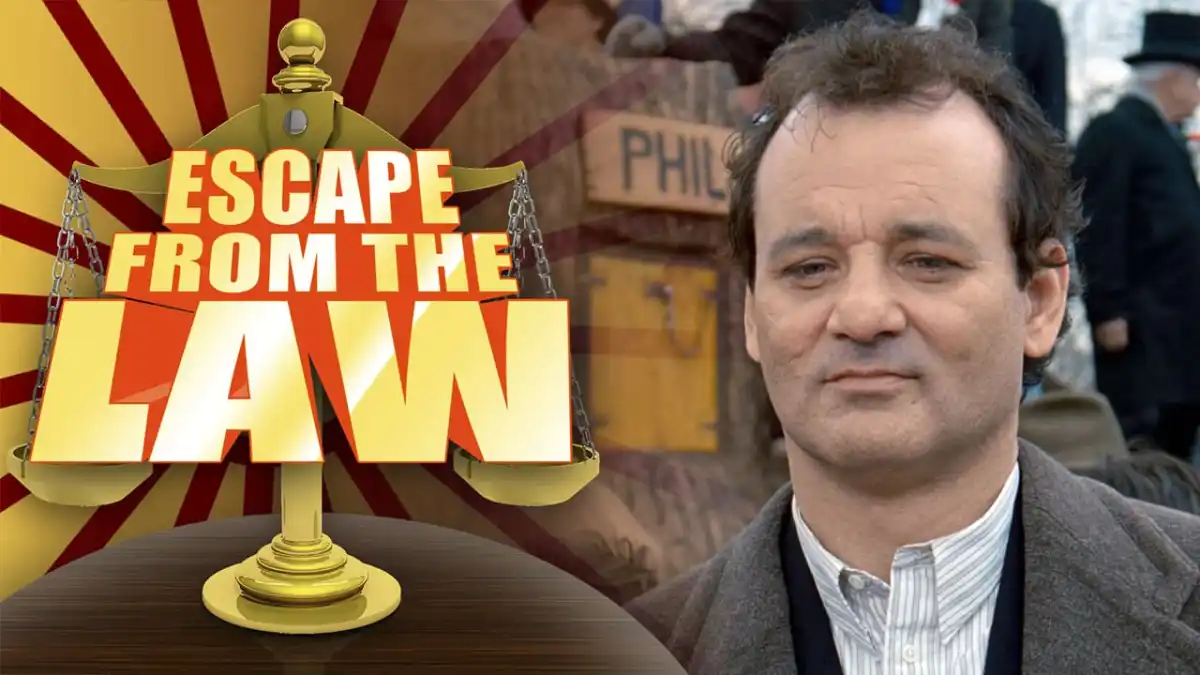Time travel is weird. We saw it in All You Zombies where the lead character became his own mother, father, lover, kidnapper, and bartender. We also saw it in Primer, which is seemingly impossible to understand, even after reading a book’s worth of flow charts, essays, and attempted explanations. What makes time travel so confusing is that it warps the laws of physics and requires us to revisit everything we thought we knew about the world.
But time travel doesn’t just warp the laws of physics — it warps the law itself. In the past, I’ve explained how time travel obliterates statutes of limitations and how the criminal justice system is powerless in the face of time travel murder. This week, I’m going to take it one step further to explain a legal time paradox — or how time travel can turn widely accepted legal principles on their head.
For the purposes of this article, I’ll be discussing instances in which time travelers have the ability to repeatedly travel back in time, to change the timeline based on previous time trips, and to observe the consequences of their actions. This would apply to the kinds of time travel seen in Groundhog Day, 11/22/63, and Prince of Persia: The Sands of Time, but it would not apply to the time travel seen in The Terminator, A Connecticut Yankee in King Arthur’s Court, or Avengers: Endgame.

Understanding the Legal Principles
There are two legal principles that are relevant to this analysis. The first principle is that the law does not require individuals to help strangers in need. For example, drivers are not required to help hitchhikers reach their destination, nor is a person required to call an ambulance if they see a person collapse. (I considered this rule in my previous column on transporter liability). Instead, requirements to help others arise from preexisting relationships. To list just a few examples, parents have an obligation to help their children, doctors have an obligation to help their patients, and innkeepers have an obligation to protect their patrons. Generally speaking, in the absence of a special relationship, the only obligation one has is an obligation not to harm someone else. We can call this the Hippocratic principle. (Lawyers call it “duty.”)
The second principle is that, when it comes to avoiding harm, the law is concerned with predictability rather than personal responsibility. As an example, suppose Alice drives to a restaurant to pick up a carryout order. Alice doesn’t expect to be away from her car very long, so she leaves the keys in the ignition. While Alice is away, Bob steals her car, drives for a few blocks, and then collides with another driver. In several states, the law would hold Alice responsible for the damage caused by Bob — even though Alice did not steal a car and did not drive recklessly.
Why? Because (according to the courts) it is reasonably foreseeable that a thief would steal a readily available car and reasonably foreseeable that a thief would drive negligently in his efforts to flee. Thus, it was negligent of Alice to leave her keys in the car, and she can be held liable for any damage that would reasonably follow from that mistake.
In other words, the fact that the harm was imposed by another person is not as important as the fact that it was reasonably foreseeable that the harm would take place. We can call this the foreseeability principle. (Lawyers call it “proximate cause.”)

Applying Law to Time Travel (and Groundhog Day)
The Hippocratic principle and the foreseeability principle are well-established and can be applied consistently and (mostly) predictably. Time travel, though, changes everything.
What makes time travel special is that time travelers have access to more information than regular people — a time traveler can take an action, see how it plays out, and then, if the outcome is not desirable, go back and try again. Thus, in the world of a time traveler, the concept of “reasonable foreseeability” breaks down. There is no need for time travelers to balance risks or conduct a cost-benefit analysis, since any negative consequence or event can be reversed with the flip of a switch.
Groundhog Day shows us just how powerful this knowledge can be — Phil Connors was trapped in the same day for 10 years, and as he approached the end of the loop, he figured out how to prevent numerous deaths, enact the perfect bank robbery, and seduce 90% of women in the town, among other things. A person in that kind of situation would have perfect knowledge — virtually any action would have known and certain consequences, and a time traveler would know how each and every action would impact — for better or worse — those around him.
This means that a time traveler could be held responsible for all of the consequences of his actions, regardless of how attenuated those consequences are from the underlying action. As a simple example, consider a scenario in which Phil greets Alice on a street corner. Because of the brief conversation, Alice is delayed by a few seconds in her commute to work and as a result gets run over by careless driver Bob. If Alice had not spoken with Phil, she would have avoided Bob entirely.

In the normal world, we would say that Bob is entirely to blame. But if Phil is in a time loop, then he would know that his conversation would lead to Alice’s death and could avoid it in future loops. Thus, as far as Phil is concerned, talking with Alice is a reasonably foreseeable cause of her death — even though, from the perspective of everyone else, the consequence seems completely divorced from the underlying action.
Time travel also poses a problem for the Hippocratic principle. The “do not harm others” principle presupposes the existence of a baseline status, as if to say, “You have an obligation not to act in a way that would harm a person, as measured relative to the person’s status in the absence of your action.” Time travel throws that baseline status into question.
Suppose that during the first course of events (i.e., in the first day of the time loop), Phil takes an action that causes (through some chain of events) Alice to avoid an injury. In time loop B, Phil knows that through his actions in the “normal” course of events, Alice would have avoided an injury. Thus, in a sense, Phil knows that he will cause her injury if he does not take the action. Put differently, time travel raises the question of which timeline should be used to measure someone’s baseline status (i.e., which timeline you should use to figure out whether your actions have harmed another). A few potential answers come to mind:
- What the timeline would look like without the time traveler.
- What the timeline looked like after the first iteration.
- Evaluate each iteration independently, according to the normal rules.
- The best timeline for each person.
It is not easy to choose between those (or any other) options. This is similar to the problem we encountered when considering time annihilation as a crime — when a time traveler has the ability to switch at will between one timeline and another, there is no principled basis to favor one timeline over another. Here, however, the problem is more challenging, since a time traveler’s complete mastery over events means that a time traveler is responsible for everything that happens — and does not happen — in a particular timeline. In other words, a time traveler is responsible for all events, because a time traveler controls all events (provided that the time traveler has the ability to impact those events in at least one of the infinite potential timelines).

Or, put differently, when time travelers enter their last time loop, they necessarily decide — through their actions — which of an infinite number of timelines to enact. In this way, time travelers can be said to have caused any harm or injury experienced in their chosen timeline. In this sense, one could argue that, in a world of time travel (and particularly time loop time travel), one’s obligation not to harm others amounts to an obligation to help others avoid harm, since any decision not to avoid harm would be equivalent to a decision to impose that harm.
So far, my consideration of time travel has been limited to the Groundhog Day scenario — a time loop with countless iterations that does not take a physical toll on the time traveler from loop to loop. The analysis applies just as much to less extreme scenarios, but the implications of the analysis will not be as severe.
For example, time travelers with only three iterations of a time loop will have a much better understanding of how their actions affect others relative to non-time travelers — but their knowledge will not be anywhere near as developed as an infinite time-looper. Thus, three-loop time travelers can be held to a higher standard of “reasonable foreseeability” than an average person, but they cannot be held to the same standard as a Phil Connors-like time traveler. In essence, the less knowledge a time traveler has about the consequences of their actions, the less responsible they are for those consequences.
Likewise, in a scenario with just a few iterations, the overall state of the timeline would still be outside of the time traveler’s control, so the Hippocratic principle would mostly apply in the same way as it does in a world without time travel. (Of course, the more timelines a time traveler has to choose from, the stronger the argument that the traveler’s selection of a timeline amounts to a decision to impose the harm in that timeline.) The specifics of the scenarios and of one’s legal obligations will vary based on the number of time jumps, the physical toll of those jumps on the time traveler, the cognitive abilities of the time traveler, and the duration of the time window (that is, repeating a day is much different than repeating a lifetime).

Conclusion
Again — time travel is weird. It leads to unanticipated consequences and counterintuitive results. But law is also weird and also leads to unanticipated consequences and counterintuitive results. In 1995, a man was sentenced to life in prison for stealing a piece of pizza; Brian Dement is serving a life sentence in prison, despite the fact that DNA evidence conclusively proves he is innocent; police think that saggy pants create probable cause for a search. The list goes on.
It stands to reason that when you cross the streams of time travel and law, “You’re going to see some serious shit.” And that’s exactly what we’ve seen — for time travelers, the rule that says you can only be held responsible for the foreseeable would hold time travelers responsible for everything. The rule that says you have no obligation to help strangers says that time travelers must help strangers.
On one hand, these rules are fantastic — it shows that a hypothetical era of time travel would usher in a new age of moral responsibility and high moral character. On the other hand, for people like me who dream of time travel, these new rules provide yet another obstacle on the road to time mastery. People often wonder: If time travel exists, why haven’t we seen any time travelers yet? Now we know the answer: The legal fees and liability associated with time travel are just too high — not even the most adventurous of explorers would dare risk that kind of legal exposure.





